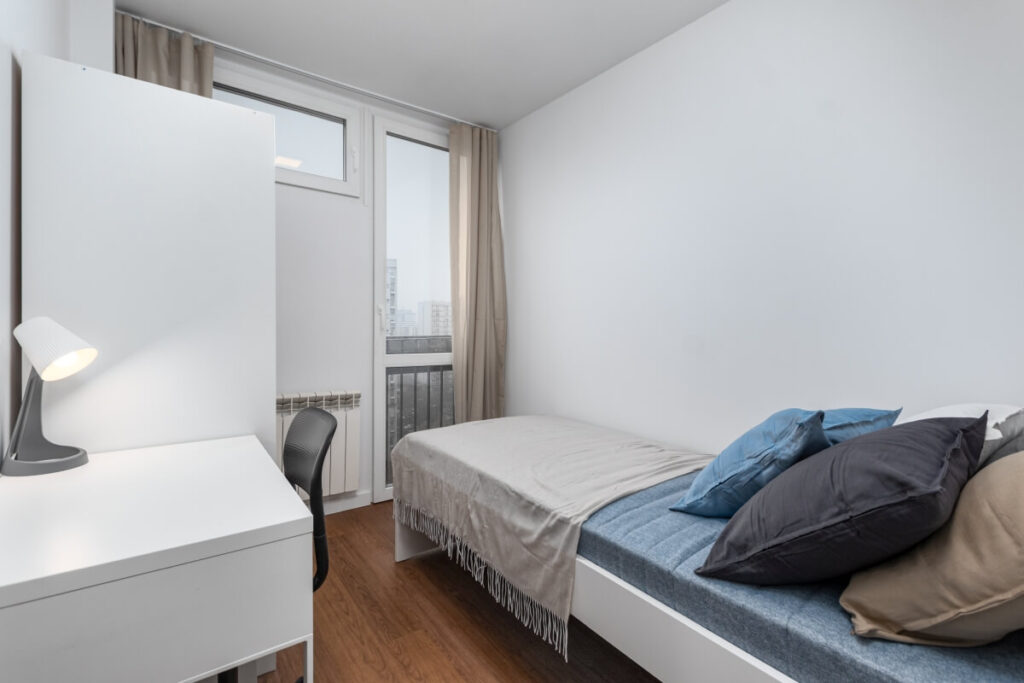Leasing a flat is often a lengthy and tiresome process that involves a number of formalities and considerations to be taken into account. Therefore, today, in order to make this arduous task slightly easier for you, we will introduce you to the subject of the formalities involved in renting a flat in Poland. What is a tenancy agreement? Which tenancy agreements do you have to choose from? What obligations does the tenant have and what is the landlord bound to do? Find out all this in today’s article.
Lease agreement – what is it?
A lease agreement under Polish civil law is any agreement in which the lessor undertakes to provide the subject of the lease for the use of the lessee, for a definite or indefinite period of time, in return for consideration in the form of rent paid by the lessee. The object of the lease may be either movable or immovable property, as well as parts of a thing as a whole or even its component parts. Excluded from the lease, however, are all consumable objects and rights, such as copyright. The provisions concerning lease agreements are to be found in the Civil Code in articles 659 to 692 and in the Act of 21 June 2001 on the protection of tenants’ rights, the housing resource of the commune and amendments to the Civil Code (Journal of Laws of 2022, item 172).
Form of the lease agreement in Poland
According to Polish law, those involved in the process of renting premises can choose from three contractual forms. They can bet on a civil law contract, an occasional tenancy agreement and an institutional tenancy agreement. A civil-law agreement may be proposed to the tenant by any landlord, regardless of whether he is an individual or functions as a company that rents out flats as part of its business activities. An occasional tenancy agreement may only be chosen by a landlord who is an individual, while an institutional tenancy agreement is available only to an entrepreneur.
Residential tenancy agreement – legal issues
A residential tenancy agreement is a specific tenancy agreement concerning premises used by the tenant to meet their housing needs. The lease of a dwelling is governed by the general provisions of the Civil Code of the Republic of Poland concerning leases (Articles 659-679), as well as by the special provisions of the Civil Code concerning leases of premises (Articles 680-692). In addition, a residential lease agreement must comply with the rules set out in the Act of 21 June 2001 on the protection of tenants’ rights, the housing stock of the municipality and amendments to the Civil Code. The Code does not reserve a specific form for the lease agreement for real estate or premises, but for agreements longer than one year, it recommends a written form.
What should a residential tenancy agreement contain?
If you want to rent a room, a flat or a house, you need to ensure that you have a properly drafted tenancy agreement. A residential tenancy agreement should contain at least the following elements:
- the date and place of the agreement,
- the parties to the agreement (names of the tenant(s) and landlord(s))
- a detailed description of the subject of the tenancy (dwelling premises) and its equipment,
- specification of the amount of rent and how it is to be paid,
- provisions concerning the payment of other costs relating to the premises,
- provisions concerning the deposit,
- the rights and obligations of the parties,
- the duration of the agreement and whether it is for a fixed or indefinite term,
- provisions concerning the termination of the lease agreement and return of the leased property,
- provisions determining the competent court for settling disputes.
Lease agreement – obligations of the parties
Wondering what the obligations of each party are? The landlord is obliged to deliver the property to the tenant in a condition fit for the agreed use and to maintain it in a suitable condition throughout the term of the agreement at its own expense. The tenant, on the other hand, is required to pay rent in the agreed amount, time and form, and to use and take care of any items in the manner provided for in the contract.
Lease agreement – notice period
The lease relationship expires automatically at the end of the period for which the agreement was concluded. If the period is not specified, it is necessary to terminate it in writing in accordance with Article 673 of the Civil Code, observing the contractual deadlines, or in the absence thereof, the statutory deadlines.
Lease agreement – summary
Whether you want to rent out a flat, a room or a house, a properly drafted tenancy agreement is a safeguard for you in the event of potential problems, so ensure that it is drafted by a professional with all legal requirements considered.




